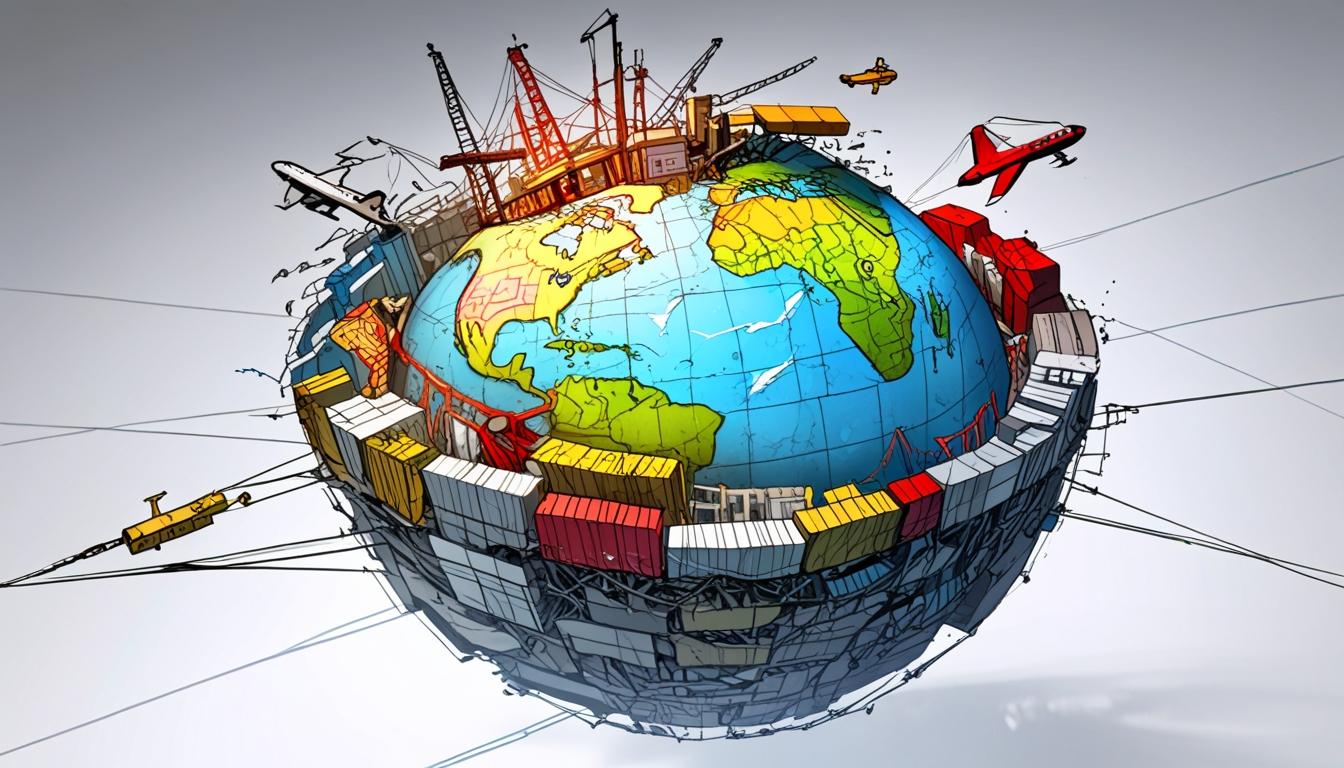A recent study led by Dr. Timothy Neal from the University of New South Wales has revealed alarming insights into the potential economic impact of climate change, suggesting that the conventional models used to predict economic losses have seriously underestimated the risks. The research indicates that if global temperatures were to rise by 4°C, the global economy could suffer losses nearly four times greater than previously anticipated.
According to the findings, even a 2°C increase—a target deemed ambitious—could reduce global GDP per capita by 16%. This projection significantly contrasts with earlier forecasts which estimated a modest decrease of just 1.4%. The authors argue that traditional models tend to overlook the interconnected nature of global supply chains, where extreme weather events can trigger cascading failures. Dr. Neal underscored this point, stating, “In a hotter future, we can expect cascading supply chain disruptions triggered by extreme weather events worldwide.” He emphasized that the repercussions will extend far beyond the regions directly affected by these disasters.
Professor Andy Pitman, a co-author of the study, elaborated on the implications of extreme weather events, noting, “It’s in the extremes when the rubber hits the road. It isn’t about average temperatures.” The study highlights how climate change is not only warming the planet but also destabilising systems crucial for global trade, food production, and economic stability.
Another significant point raised in the research is the misconception that some northern countries may benefit from moderate warming. Dr. Neal pointed out that “global heating will hit countries everywhere,” and added that any local agricultural benefits in certain regions would be overshadowed by the collapse of global trade networks. This view is further supported by Professor Frank Jotzo from the Australian National University, who critiqued earlier models for their assumption that one region could easily compensate if another faltered. “That’s simply not how the real world works,” he stated.
The study criticises existing economic models for perpetuating the dangerous notion that climate change is a manageable or slow-moving threat. A report from the Institute and Faculty of Actuaries highlighted flaws in current predictions, particularly their neglect of potential tipping points, rising sea levels, geopolitical instability, and health crises.
Looking ahead, some experts believe that even the new projections could be understated. Mark Lawrence, a former financial risk manager currently focused on climate risk, expressed concern about the severity of potential economic impacts, suggesting, “If anything, I believe the economic impacts (of climate change) could be even worse.”
With far-reaching implications for global economic planning, Professor Pitman called for an urgent re-evaluation of economic models to accurately reflect extreme weather and global interdependencies. He warned that without such essential updates, humanity risks careening towards a future marred by climate-driven poverty.
Source: Noah Wire Services
